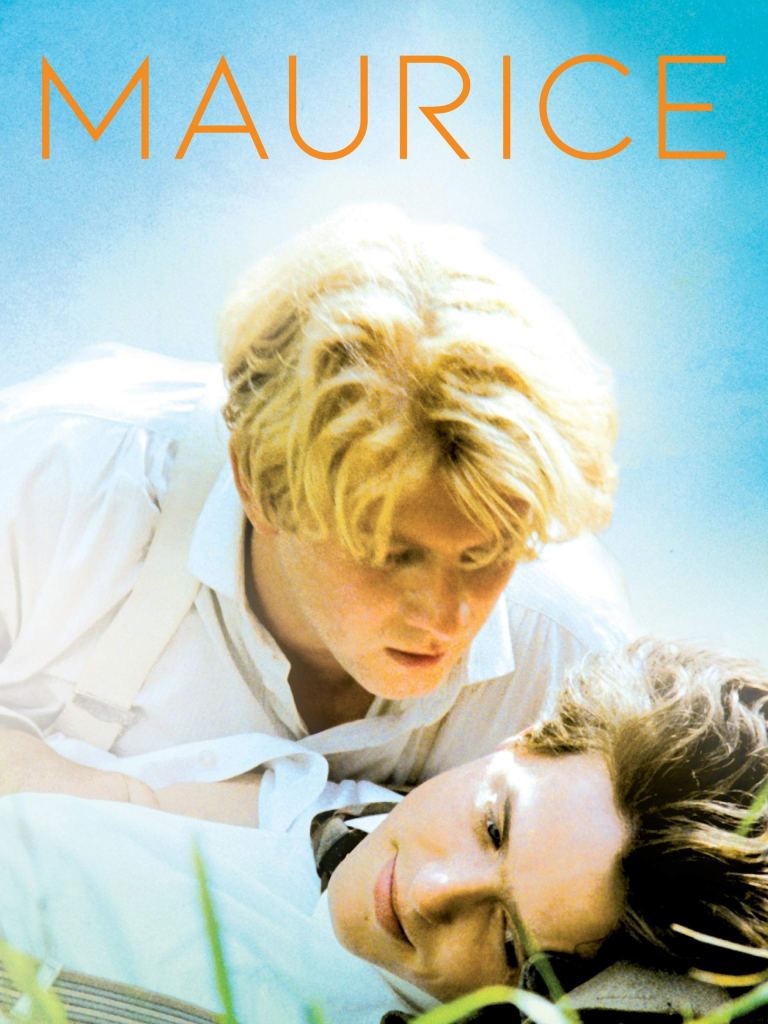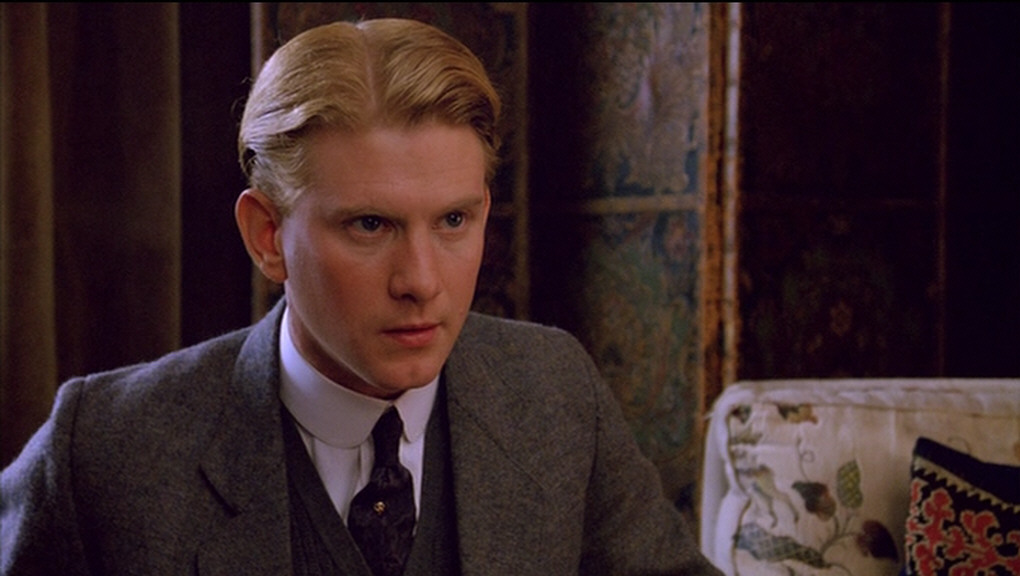Maurice
Director: James Ivory
Writer: Kit Hesketh-Harvey, James Ivory
Based on: E. M. Forster‘s novel
Cast: James Wilby, Hugh Grant, Rupert Graves, Denholm Elliott, Simon Callow, Billie Whitelaw, Barry Foster, Judy Parfitt, Phoebe Nicholls, Patrick Godfrey, Mark Tandy, Ben Kingsley, Kitty Aldridge, Helena Michell, Catherine Rabett
Seen on: 22.4.2022
Content Note: (critical treatment of) homomisia, classism
Plot:
Maurice (James Wilby) meets Clive (Hugh Grant) at Cambridge University where they connect over philosophy and music. Their friendship quickly deepens and when Clive confesses his love for Maurice, Maurice is thrown at first but finally able to admit his love for Clive as well. Only that Clive wants to keep sex out of their relationship, especially since homosexuality is still forbidden in the UK. Trapped between (internalized) denial and a longing for happiness, Maurice and Clive have to make some important decisions.
Maurice is a beautifully crafted film that – given the time it is set in – I thought would be much sadder. Instead it is a powerful and very romantic call to live your truth.
Maurice does have sadness. It’s not a happy comedy where everything goes smoothly. But in the end, Maurice gets to be happy because he decides to accept and pursue his desires, even if that is not possible with Clive. We don’t get to see how things work out for him in the long run (and there is an interesting question here how much choice homosexual people had in their choice of partners a hundred years ago and how much was just the desperation and joy of finding another queer person), but it’s not that important. Even if things don’t work out with Alece (Rupert Graves), what remains is Maurice’ experience of somebody wanting him in the same way he wants him, and his self-acceptance.
I also liked to consider what modern labels we could put on Clive who seems to defy easy categorization. I don’t doubt that he loves Maurice. The rest, though, is very open to interpretation. Is his refusal of anything physical between them internalized homomisia or is it asexuality? Is his love for Anne (Phoebe Nicholls) real, or is he convincing himself? [As a bisexual myself, I interpreted his exuberance about their relationship as relief that he could also love a woman and not have to face a homomisic society.] Personally, I like to think that in modern terminology, he is a biromantic heterosexual, with some asexuality thrown in the mix. But this thought exercise has little to do with the film itself, other than it gives us such a wonderfully complex character to consider, and is more fun for me. In the end, the labels are not as important as the fact that – for whatever reason – he will not give Maurice what he is looking for.
The story combines these considerations of how to approach queerness in a society where it is outlawed with class: Clive is the richest and noblest of the three queer men this story revolves around and he has the most to lose. Maurice is on the way from middle to upper class and will have to decide which way to go: rising up in the class system and denying himself, or risk the wealth he built for his personal happiness. And finally Alec, whose low standing and poverty at least gives him the freedom to throw caution into the wind. This class analysis may be a little too simple, but there is some truth to it.
It’s a film that looks great and the cast is very well chosen to bring these characters to life. Ivory knows how to place people in their environments, and he knows when big emotions are called for, and when a smaller gesture is enough. It makes the film beautiful and emotional.
Summarizing: a classic.


